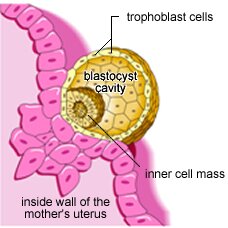|

|
Discover more about LATE PERIOD |

|
 Birth control Pills
Birth control Pills
Birth control pills are most popular contraception pills used by girls and women in many countries. In many cases birth control pills are used not for contraception but also for treatment of acne, irregular menstrual cycles, ovarian cysts, etc.
Birth control pills are synthetic forms of the hormones progesterone and estrogen taken by women to prevent pregnancy. These hormones (progesterone and estrogen) work to inhibit the body's natural cyclical hormones to prevent pregnancy. Pregnancy is prevented by a combination of factors. Birth control pills usually stop the body from releasing an egg from the ovary. The birth control pill prevents ovulation by maintaining more consistent hormone levels. Without a peak in estrogen, the ovary doesn't get the signal to release an egg, which eliminates the possibility of fertilization and pregnancy. The hormones in the pills prevent pregnancy by suppressing your pituitary gland, which stops the development and release of the egg in the ovary (ovulation).They also change the cervical mucus to make it difficult for the sperm to find an egg. Birth control pills can also prevent pregnancy by making the lining of the womb inhospitable for implantation. The progestin component of pills helps to prevent the sperm from reaching the egg and changes the lining of the uterus.
As Birth Control Pills always suppress female hormones, they could be responsible for brown discharge instead of period (rare side effect – super-suppression by pills).

|
Discover more about BIRTH CONTROL PILLS |
 Pelvic Inflammatory Disease (PID)
Pelvic Inflammatory Disease (PID)
Pelvic inflammatory disease (PID) is a serious infection in the upper genital tract which called female reproductive organs (uterus, fallopian tubes and ovaries). PID can be sexually transmitted or naturally occurring. In most cases PID is caused by a type of bacteria, often the same type that is responsible for several sexually transmitted diseases, such as gonorrhea and chlamydia. In some cases, PID develops from bacteria that have traveled through the vagina and the cervix by way of an intrauterine device (IUD.
PID can affect the uterus, fallopian tubes, and/or the ovaries. It can lead to pelvic adhesions and scar tissue that develops between internal organs, causing ongoing pelvic pain and the possibility of an ectopic pregnancy. PID could be a reason of brown discharge instead of period, infertility (untreated cases). In fact, PID is currently the leading cause of female infertility. If left untreated, PID can also lead to chronic infection and chronic brown discharge instead of period.

|
Discover more about PID |
Perimenopause or menopause
Perimenopause is a naturally occurring transition period of women life which is happening before menopause - it is the time when your body begins its transition into menopause. Perimenopause is the stage of women’s reproductive life that begins several years before menopause, when the ovaries gradually begin to produce less estrogens. It usually starts in women’s 40s, but can start in women’s 30s.
Perimenopause is a transitional stage of 2-11 years before complete cessation of the menstrual period. Perimenopause develops when women’s reproductive system begins slowing down, resulting in decreased production of hormones (mainly estrogens and progesterone). Perimenopause is the interval in which women’s body makes a natural shift from regular menstrual cycles and regular monthly ovulations to irregular menstrual cycles, anovulation and natural permanent infertility.
In general, brown discharge instead of period is common symptom for starting perimenopause. In early perimenopause women could also experience menopause-like symptoms, such as hot flashes, night sweats, mood swings, sleep disruption, vaginal dryness, and a lot of confusion. Perimenopause symptoms including brown discharge occur as estrogen levels continue to drop leading up to menopause.
 |
Discover more about PERIMENOPAUSE & MENOPAUSE |
BROWN DISCHARGE
|
 |

